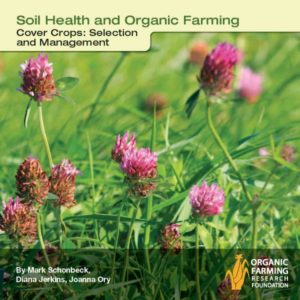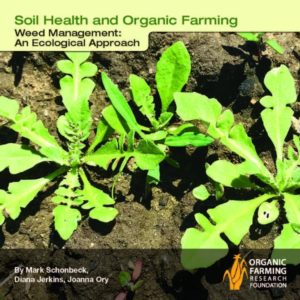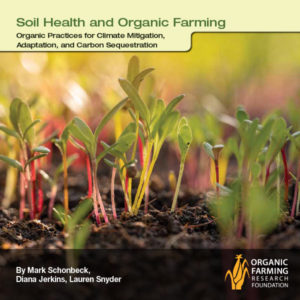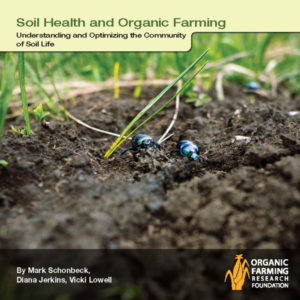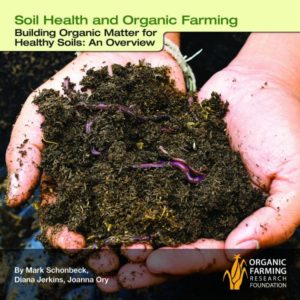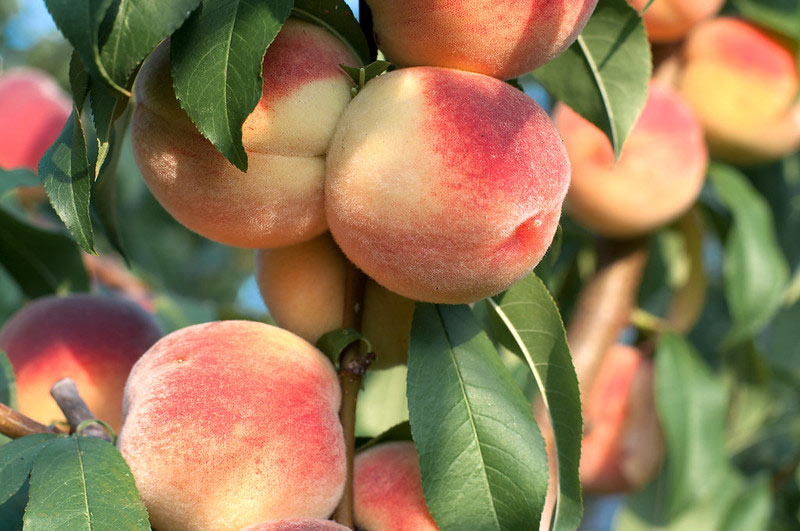Organic Practices for Climate Mitigation, Adaptation, and Carbon Sequestration
Climate change threatens agriculture and food security across the U.S. and around the world. Rising global mean temperatures have already intensified droughts, heat waves, and storms, and altered life cycles and geographical ranges of pests, weeds, and pathogens, making crop and livestock production more difficult. Intense rainstorms aggravate soil erosion and complicate water management, and higher temperatures accelerate oxidation of soil organic matter. Warming climates modify crop development regulated by growing degree-days or “chill hours,” and threaten production of perennial fruit and nut crops that have strict chilling requirements to initiate growth and fruit set. Thus, agricultural producers have a major stake in efforts to curb further climate change, as well as improving the resilience of their farming and ranching systems to the impacts of climate disruption.
Understanding and Optimizing the Community of Soil Life
The goal of this guidebook is to help organic farmers navigate the wilderness of soil life and soil health management by providing up-to-date, science-based information on:
- The soil food web, its key components, and functions.
- Assessing and monitoring soil life and soil biological condition.
- Managing soil life for long term soil health and productivity in organic systems.
- Biological management of plant diseases.
- Microbial inoculants and biostimulants: whether, when, and how to use them.
Building Organic Matter for Healthy Soils: An Overview
This report summarizes research findings on SOM and soil health in organic farming systems, and outlines some practical applications for organic producers. Companion reports explore soil health-enhancing approaches to fertility and nutrient management, tillage, and weed control; cover crops and crop rotation, and the role of plant genetics in soil health and organic production
Nutrient Budgeting in Organic Grain Production
Nutrient Budgeting in Organic Grain Production
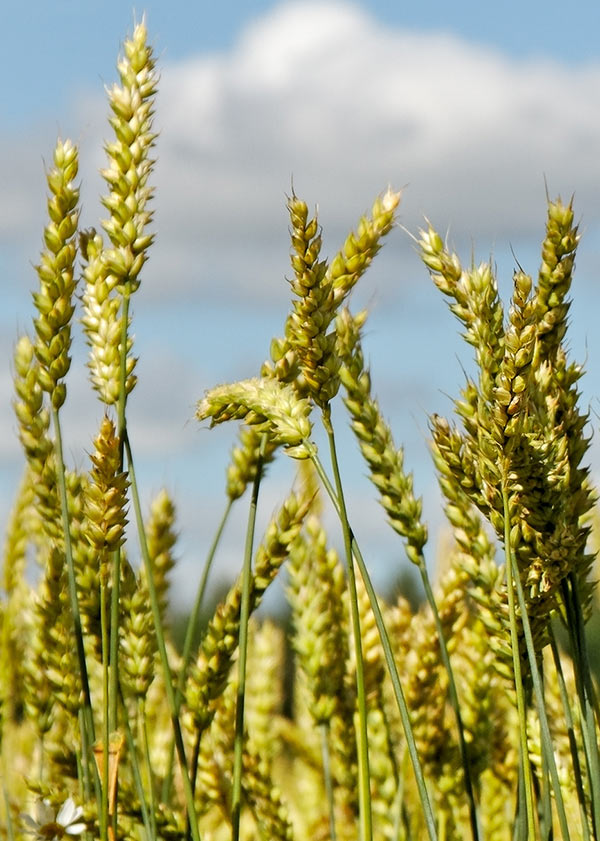
Iris Vaisman, University of Manitoba
Green manures play an essential role in organic grain-based systems on the Canadian prairies by contributing to soil health, cash crop yield, and grain quality. The goal of this project is to increase the use and proper management of green manures. The researchers want to help farmers better understand their whole-farm nutrient budget and increase the adoption of green manures to enhance soil health and farm resiliency.
Impact: Improved soil health, cash crop yield, and grain quality through the use and proper management of green manures.
Flowering Plants in Organic Strawberry Fields to Enhance Natural Enemies and Pollinators and Improve Pest Control and Fruit Quality
Flowering Plants in Organic Strawberry Fields to Enhance Natural Enemies and Pollinators and Improve Pest Control and Fruit Quality
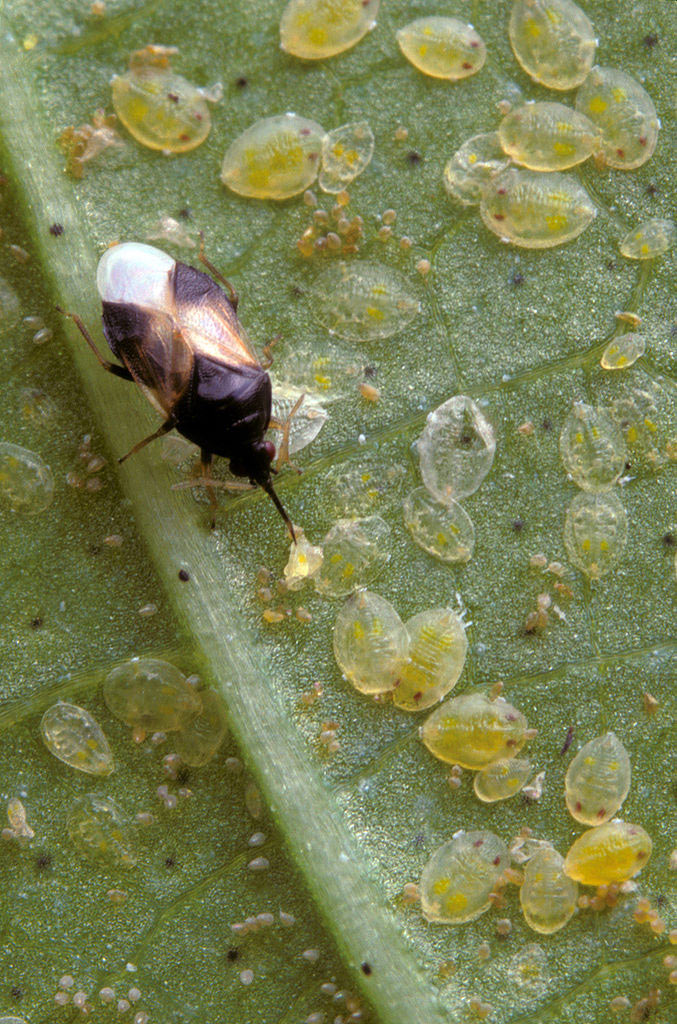
Dr. Justin M. Renkema, University of Florida
The objective of this research project is to manage for both predators and pollinators in Florida organic strawberries through intentional use of flowering plants. Dr. Renkema will target conservation of minute pirate bug, Orius spp., in the hope of showing how flowering plants support high levels of Orius spp. and pollinators, resulting in lower thrips populations and crop damage and improved crop pollination and fruit quality.
Impact: Improved crop pollination and fruit quality in Florida organic strawberries.
Photo credit: Photo of pirate bug feeding on white fly nimphs by Jack Dykinga [Public domain]
Field Evaluation of Designed Compost Extracts for Organic Weed Suppression
Field Evaluation of Designed Compost Extracts for Organic Weed Suppression
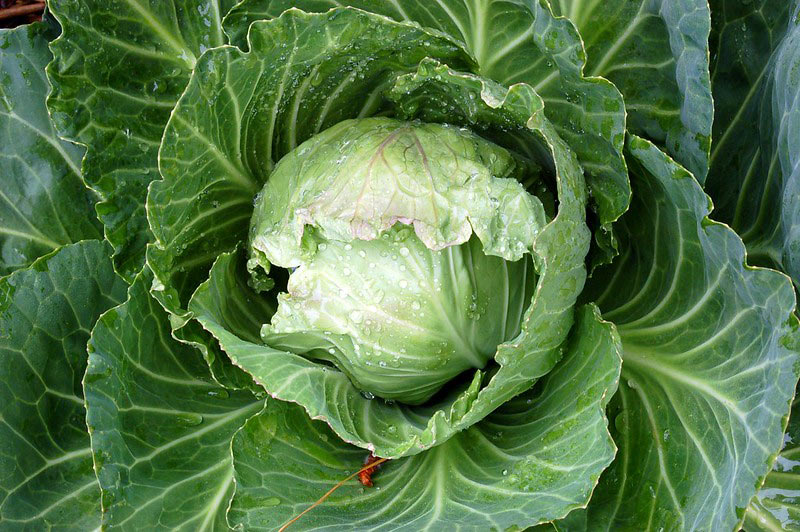
Dr. Gladis Zinati, Rodale Institute
In 2013-2014, OFRF funded Dr. Zinati to perform laboratory and greenhouse trials on the weed suppressing ability of chemically- and biologically-designed compost extracts (DCE). This new project builds off of the laboratory and greenhouse work to test the DCEs in the field and evaluate them as an alternative tactic to reduce weed pressure, soil degradation, and yield losses of field-grown organic cabbage.
Impact: Reduced weed pressure, soil degradation, and yield loss.
A New Approach for Successful Organic Peach Production in the Southeast
A New Approach for Successful Organic Peach Production in the Southeast
Dr. Juan Carlos Melgar Jimenez, Clemson University
The production of organic peaches is extremely difficult under the humid conditions of the Southeast due to high pest and disease pressures, and the lack of effective, organically approved pesticides. Dr. Melgar Jimenez will be evaluating the use of paper bags to physically protect the fruit from pests and diseases to reduce reliance on spray applications and increase yields.
Impact: Increased economic opportunity for fruit farmers in the southeast and reduced reliance on pesticides.
Developing Integrated Irrigation Management Strategies to Improve Water and Nutrient Use Efficiency of Organic Processing Tomato Production
Developing Integrated Irrigation Management Strategies to Improve Water and Nutrient Use Efficiency of Organic Processing Tomato Production
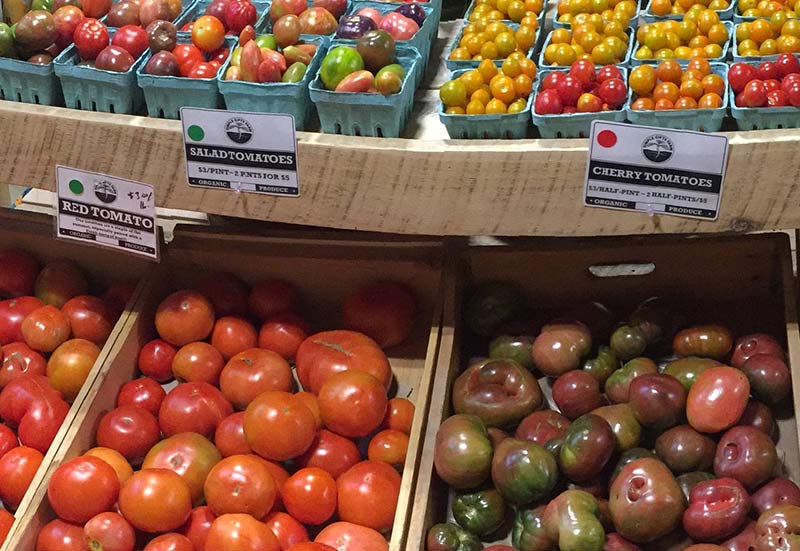
Dr. Amelié CM Gaudin, University of California Davis
This project aims at developing integrated irrigation practices that capitalize on soil health to improve the efficiency of irrigation water and decrease pest pressure and potential N losses of California organic processing tomato production. Dr. Gaudin will compare the impact of three different water management scenarios that delay onset of irrigation and/or advance irrigation cutoff on tomato water-use efficiency, yield and fruit quality and monitor shifts in water acquisition dynamics, N leaching and pest pressure.
Impact: Trial results could help convert 259,000 acres of processing tomatoes to organic production and provide techniques to mitigate and adapt to shifts in resource availability.



